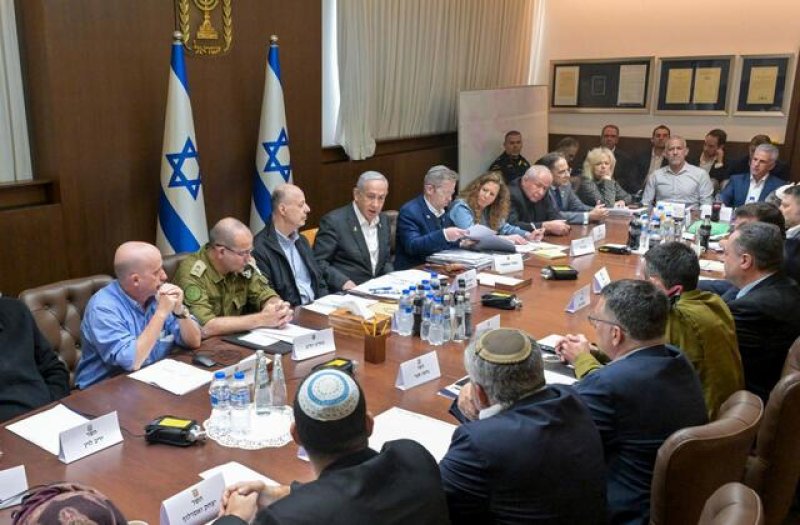
Israel's Cabinet Approves Gaza Ceasefire and Hostage Release Deal

The decision came after hours of discussions that continued late into the night. Two far-right ministers voted against the deal. BBC reported.
The security cabinet earlier recommended ratifying the agreement, saying it "supports the achievement of the objectives of the war", according to Prime Minister Benjamin Netanyahu's office.
It came hours after the prime minister's office and Hamas both said they had finalised the details of the agreement, two days after it was announced by mediators Qatar, the US and Egypt.
Under the deal, 33 Israeli hostages still held by Hamas in Gaza after 15 months of conflict will be exchanged for hundreds of Palestinian prisoners in Israeli jails during the first phase lasting six weeks.
Israeli forces will also withdraw from densely populated areas of Gaza, displaced Palestinians will be allowed to begin returning to their homes and hundreds of aid lorries will be allowed into the territory each day.
Negotiations for the second phase - which should see the remaining hostages released, a full Israeli troop withdrawal and "the restoration of sustainable calm" - will start on the 16th day.
The third and final stage will involve the reconstruction of Gaza - something which could take years - and the return of any remaining hostages' bodies.
Qatar has said the hostages to be released during the first phase will include "civilian women, female soldiers, children, the elderly, and sick and wounded civilians".
Israel says three hostages are expected to be released on the first day of the ceasefire, with more small groups freed at regular intervals over the next six weeks.
The Israeli military launched a campaign to destroy Hamas - which is proscribed as a terrorist organisation by Israel, the US and others - in response to an unprecedented cross-border attack on 7 October 2023, in which about 1,200 people were killed and 251 taken hostage.
More than 46,870 people have been killed in Gaza since then, according to the territory's Hamas-run health ministry. Most of the 2.3 million population has also been displaced, there is widespread destruction, and there are severe shortages of food, fuel, medicine and shelter due to a struggle to get aid to those in need.
Israel says 94 of the hostages are still being held by Hamas, of whom 34 are presumed dead. In addition, there are four Israelis who were abducted before the war, two of whom are dead.
Ahead of the Israeli government's vote on the deal, Culture Minister Miki Zohar of Netanyahu's Likud party said: "It's a very hard decision, but we decided to support it because it's very important to us to see all of our children, men and women back home."
"We hope that in the future we will be able to finish the job in Gaza," he added.
But far-right National Security Minister Itamar Ben-Gvir said he was "horrified" by the details of the agreement, including that "life-sentenced terrorists" would be released in exchange for the hostages, and urged other ministers to join him in voting against it.
On Thursday, Ben-Gvir announced that his Jewish Power party would leave the governing coalition if the deal was approved. But he said he would not bring down the government in parliament and would return "if the war against Hamas resumes with full force".
Finance Minister Bezalel Smotrich, another far-right politician who opposed the deal, has said his Religious Zionism party will quit if the war does not resume after the first phase ends.
The three-phase structure has also caused division and anxiety among some of the hostages' families. They fear their relatives will be abandoned in Gaza after the first phase is done and are urging the government to ensure the second and third phases are also implemented.
"For 469 days our loved ones have been abandoned in captivity, and now, finally, there's hope," said Einav Zangauker, whose 25-year-old son Matan was abducted from Kibbutz Nir Oz.
"This agreement must be followed through to the end, to bring everyone home and end the war. Ending the war, returning everyone and returning to normalcy is in Israel's interest."


